Pregnant women in Gaza bear brunt of war, siege as healthcare is in shambles
By Maryam Qarehgozlou
The air is heavy with the acrid smell of smoke and the sound of explosions reverberates through the walls of the makeshift shelter, as a young woman, with her face giving out vibes of worry and fear, is enduring the excruciating pain of childbirth on the rubble-filled floor.
Grinding her teeth and squeezing her eyes, the woman is summoning every ounce of her physical and spiritual strength to bring new life into the world amid the rubble in the dingy room.
Exactly 109 days into Israel’s genocidal war on the Gaza Strip, which has killed over 25,300 people, the events have impacted women, especially expectant mothers, in unimaginable ways.
The humanitarian catastrophe caused by Israel’s indiscriminate military assault against Palestinians in Gaza counts some 50,000 pregnant women among its victims, according to the United Nations.
The world body says more than 5,200 pregnant Palestinian women living in the besieged Gaza Strip are expected to deliver next month and on average more than 180 births are taking place every day amid the “decimation” of the territory’s healthcare system with most of the hospitals shut.
The United Nations warns that fifteen percent of pregnant women in the coastal strip are likely to experience pregnancy or birth-related complications and need additional medical care.
According to healthcare workers in Gaza, women there are walking a tightrope to deliver babies due to the lack of access to hospitals and medical supplies caused by Israel’s ongoing war and blockade.
They face a higher risk of infection and death after giving birth or having an emergency c-section with little or no anesthesia or painkillers in shelters, their homes, the rubble-filled streets, or in overwhelmed healthcare facilities, where sanitation is worsening.
Health workers say this has resulted in increased infant mortality and a range of deadly reproductive health outcomes for women in the strip where most of the fatalities are women and children.
“Pregnant women are at risk of not receiving adequate care in case of complications. Hundreds of cases of miscarriages and premature births have been reported since the outbreak of [the war],” the UN Office for the Coordination of Humanitarian Affairs (OCHA) said on Thursday.
Miscarriages, infections on the rise
Miscarriage rate among women in the Gaza Strip has skyrocketed by 300 percent since the beginning of the war and genocide on October 7, Nour Beydoun, CARE’s regional advisor on protection and gender in emergencies was quoted by media as saying on Wednesday.
Beydoun said that CARE has heard about “significant weight loss” among pregnant women “due to the limited access to food, to proper nutrition,” resulting in “poor personal health and also in poor fetal and newborn health.”
According to Beydoun, many pregnant women must make the journey to hospitals or health centers on foot, still they could be turned away due to lack of capacity.
UN aid agencies also warn that the psychological toll of the war also has direct – and sometimes deadly – consequences on reproductive health, including a rise in stress-induced miscarriages, stillbirths and premature births.
Ammal Awadallah, executive director of the Palestinian Family Planning and Protection Association, was quoted as saying by Jezebel on Wednesday that many women in Gaza are at risk of giving birth in “unsafe conditions” and being put in situations where they are delivering in cars, tents, and shelters.
Awadallah explained that many c-sections and births “are being performed without basic medical supplies or anesthesia and without any postnatal care,” and that few are able to get or attend appointments with their doctors after giving birth.
“Pregnant women are only admitted when fully dilated and are dismissed within a few hours after giving birth, due to the overcrowded facilities and extremely limited resources,” Awadallah said.
The conditions in makeshift, over-packed shelters are far from ideal which also compounds the already dire situation, but according to Awadallah many “have no option other than to stay in the overcrowded shelters,” and be “dangerously exposed to infections,” which increases the risk of maternal mortality.
Before the war began on October 7, malnutrition was already high among pregnant women in Gaza, which can cause potentially life-threatening complications during childbirth, impact child survival and lead to low birth weight, wasting, failure to thrive and developmental delays.
After the eruption of the war and the ensuing blockade by the Israeli regime, access to food and water became almost zero. Pregnant women in Gaza are now struggling to feed and care for their fetuses amid rising food scarcity, increasing risks of malnutrition, disease, and death.
UNFPA, the UN Agency for sexual and reproductive health, estimates that 45,000 pregnant and 68,000 breastfeeding women in Gaza do not have enough food to eat, putting them at a higher risk of developing pre-eclampsia, hemorrhages, or even dying.
‘Unimaginable challenges’
According to the UN Children’s Fund (UNICEF), nearly 20,000 babies have been born during the war, which entered its 109th day on Tuesday, which means a baby is born in Gaza every 10 minutes.
Tess Ingram, a spokeswoman with UNICEF, back from a recent week-long visit to the Gaza Strip, recounted her “heartbreaking” encounter with mothers-to-be in Emirati Hospital in Rafah which according to her “speak to thousands of women’s experiences.”
“Iman – ran, terrified, while eight months pregnant, through the streets of Gaza City when it was under attack. Now, 46 days after a cesarean she is hospitalized with a severe infection. She is too weak to hold her new baby, Ali,” Ingram told reporters on Friday.
Another woman, Mashael, was pregnant when her house was hit and her husband was buried under the rubble for several days and then, her baby stopped moving inside her, Ingram said.
“She says she is sure now, about a month later, that the baby is dead. She is still waiting for medical care. She tells me it is best ‘a baby isn’t born into this nightmare’.”
Ingram also narrated the story of a nurse named Webda, who she said had performed emergency caesareans on six dead women in the past eight weeks.
She said mothers face “unimaginable challenges” in accessing adequate medical care, nutrition, and protection before, during and after giving birth.
She further explained that while the Emirati Hospital in Rafah is now catering to the vast majority of pregnant women in the Gaza Strip, due to the “overcrowded conditions and limited resources,” staff is forced to discharge mothers within three hours of a c-section.
These conditions put mothers at risk from miscarriages, stillbirths, preterm labor, maternal mortality and emotional trauma, Ingram warned.
“Let’s not forget, this is in the southern half of Gaza. Despite relentless efforts, UNICEF has been unable to access the north, where the situation is, incredulously, worse,” she added.
No or limited maternity services
OCHA reported on Monday that 16 hospitals are still partially functional in the Gaza Strip, including nine in the south and seven in the north.
However, it said, hospitals in the north have been offering limited maternity services.
It also said that the maternity unit at Al-Aqsa Hospital in the central area of the Gaza Strip is referring all pregnant women to Al Awda Hospital, which is further away.
“The transfer is putting patients at risk during the additional travel time, due to ongoing fighting,” OCHA warned.
Laila Baker, the Regional Director for Arab states in UNFPA, in an interview with the UN News in November said that she fears for the fate of new mothers and their children amid the “loss of complete humanity” in Gaza.
“Put yourself in the shoes of [a pregnant] woman when the surgeon says to her ‘I have no anesthesia, I don’t even have water or soap to wash my hands, but I’m going to try and save your life,’” she said.
“There was a woman who we spoke to who said, ‘Every step when I was trying to find someplace to deliver my baby felt like a race against death.’”
World Health Organization (WHO) said in a recent report that maternal deaths are expected to increase in Gaza given the lack of access to adequate care.
“Becoming a mother should be a time for celebration. In Gaza, it’s another child delivered into hell. Humanity cannot allow this warped version of normal to persist any longer. Mothers and newborns need a humanitarian ceasefire,” Ingram said.
VIDEO | Plight of Palestinians
VIDEO | Self-Driving Robot
VIDEO | Simorgh, Iran's tactical light cargo plane
Colombia to cut diplomatic ties with Israel over genocide in Gaza
VIDEO | Gazans mourn over bodies of loved ones at al-Najjar hospital in Rafah
VIDEO | Taliban: No one allowed to use Afghanistan to attack other countries
1,000 Palestinian workers from Gaza 'missing' in occupied lands: NGOs
US police nab 300 pro-Palestine students in New York


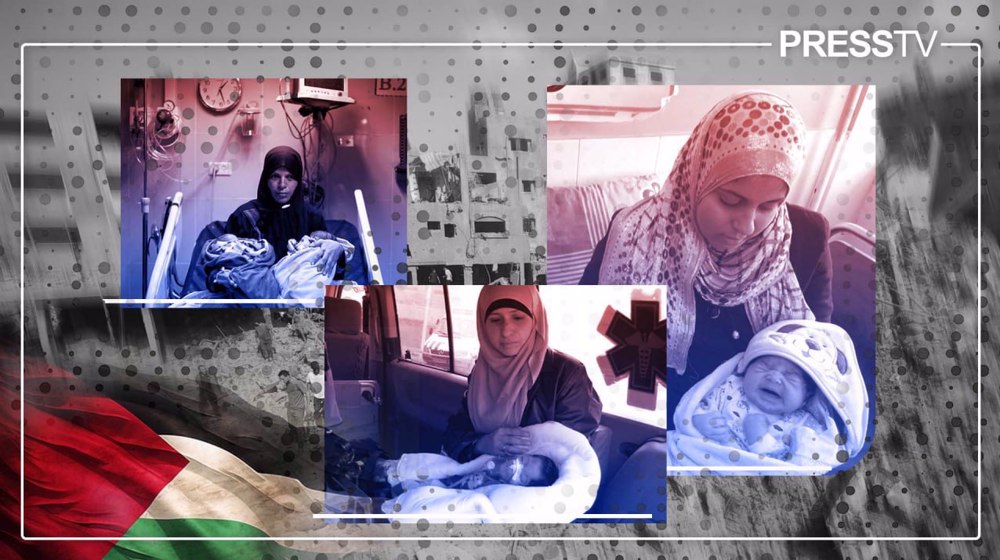
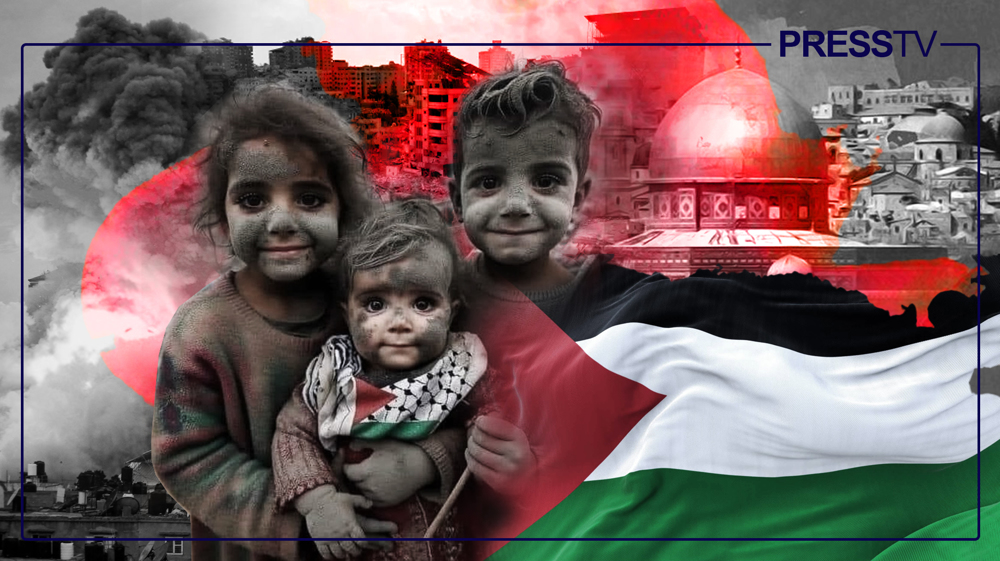
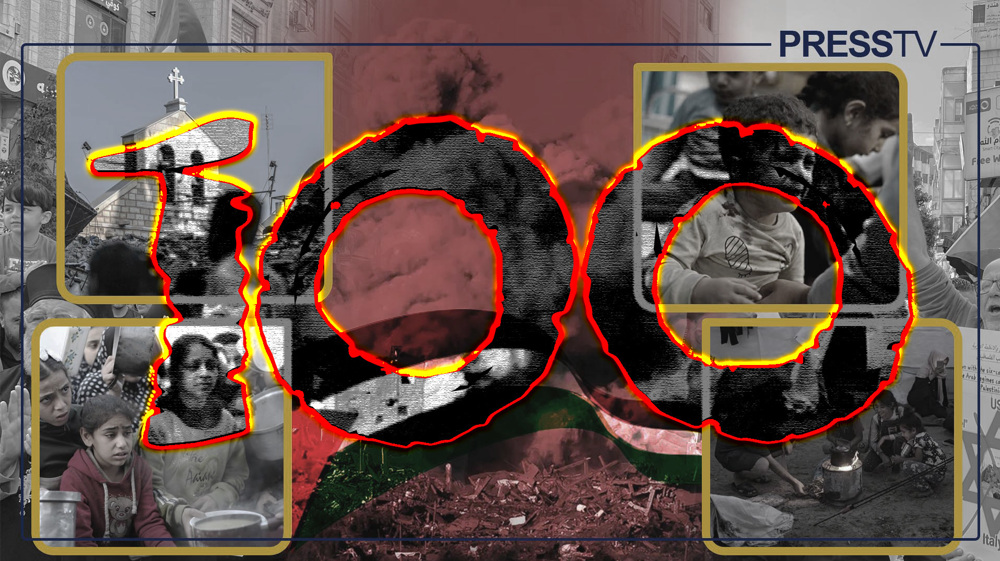
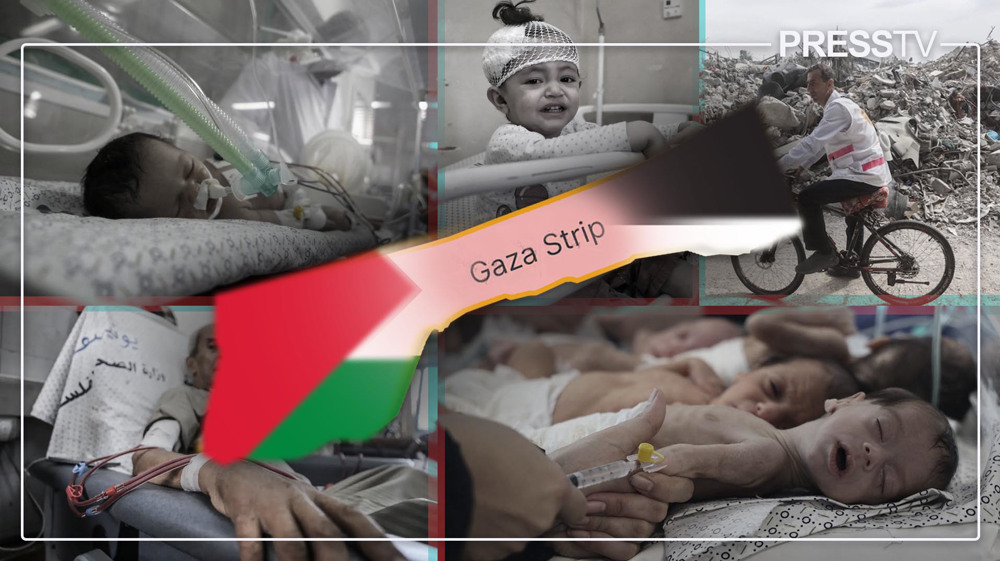

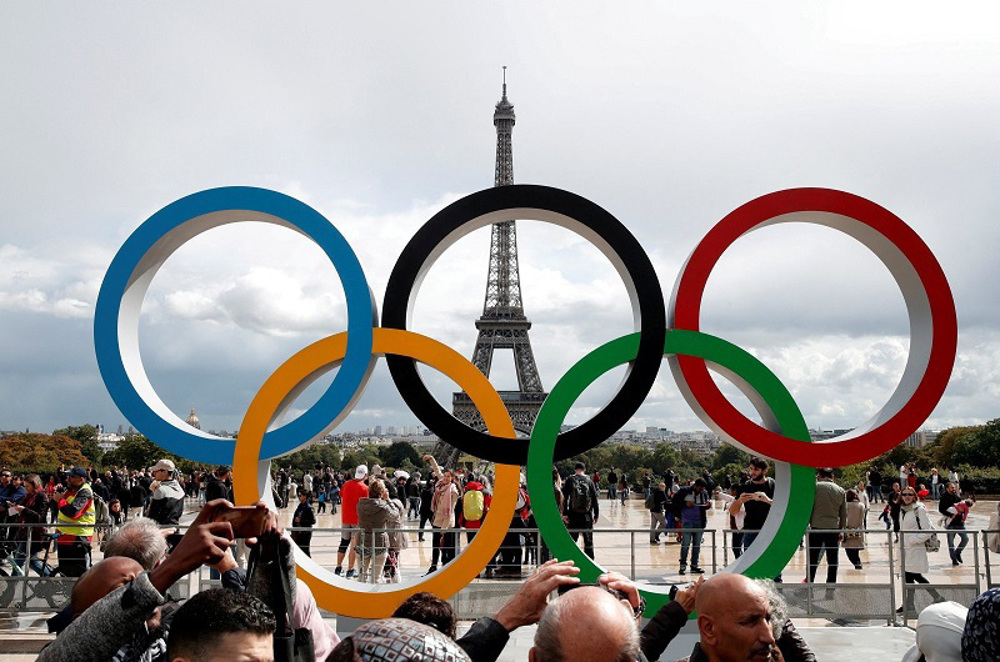
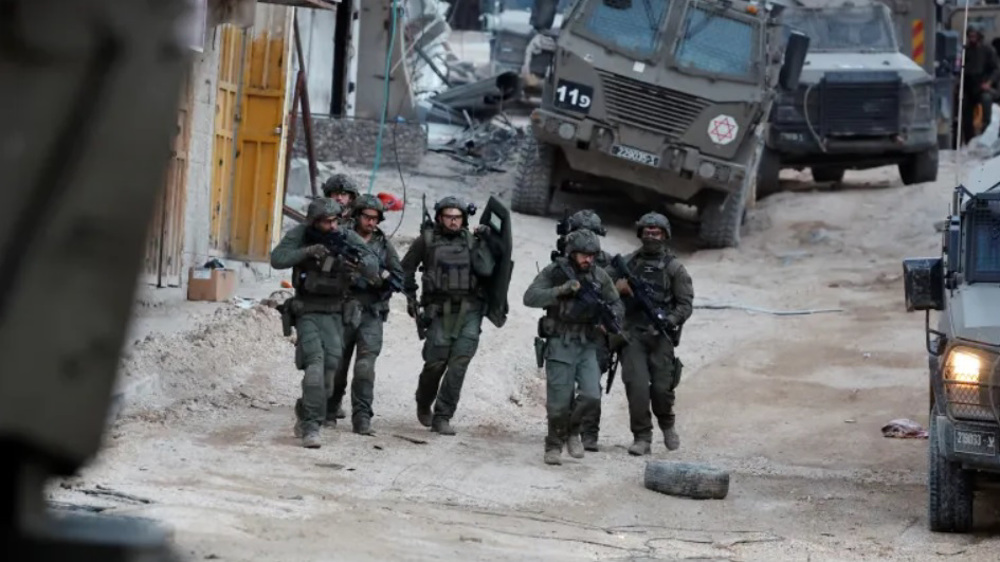



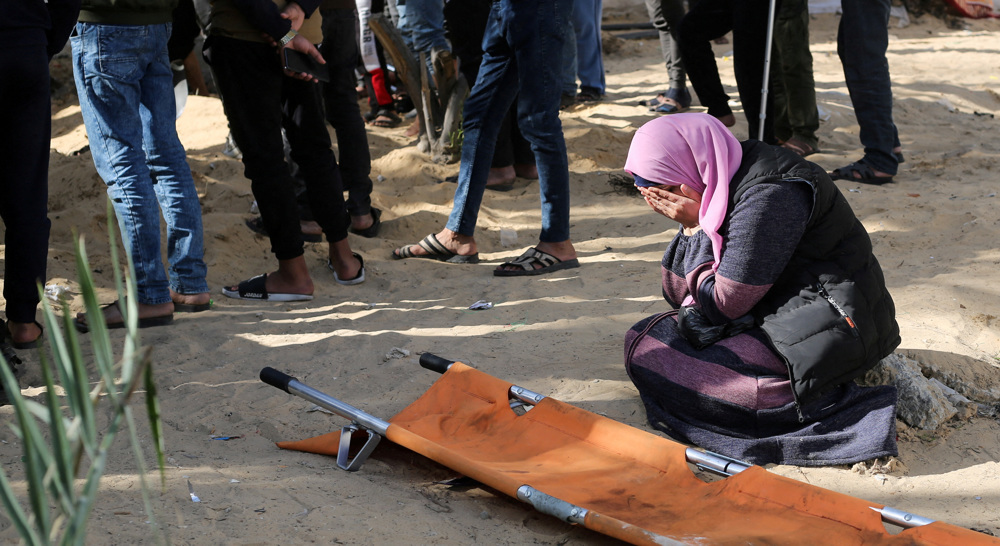
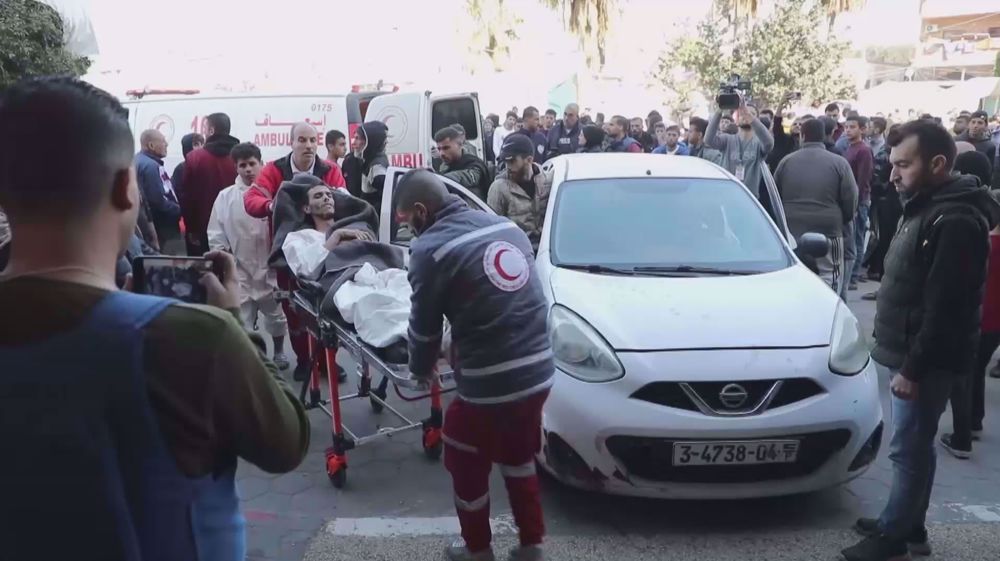
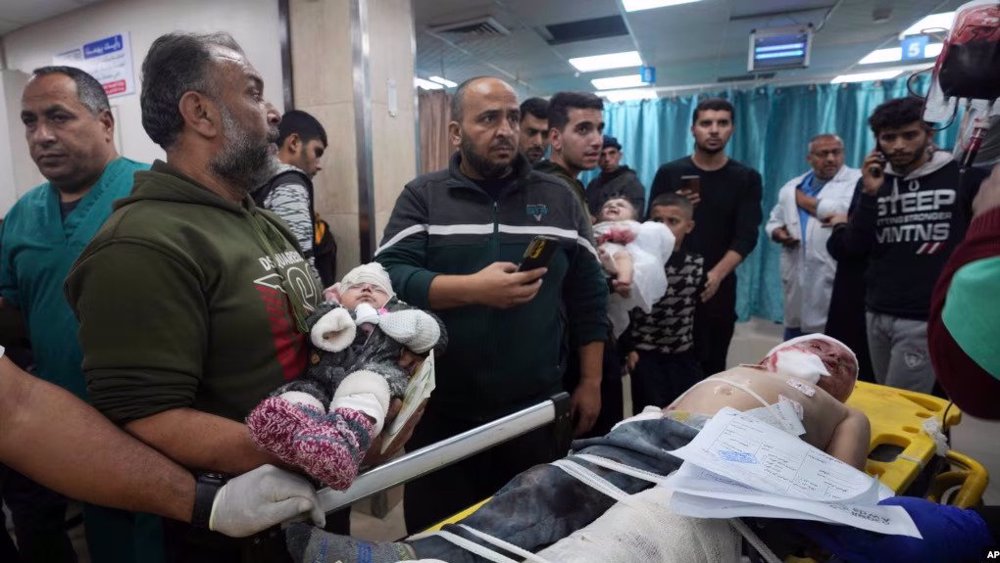
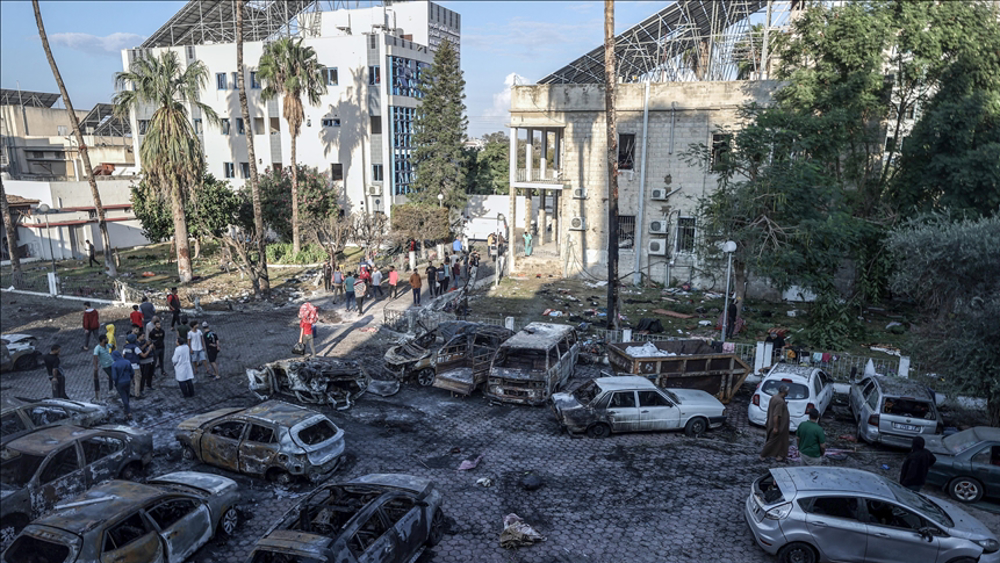
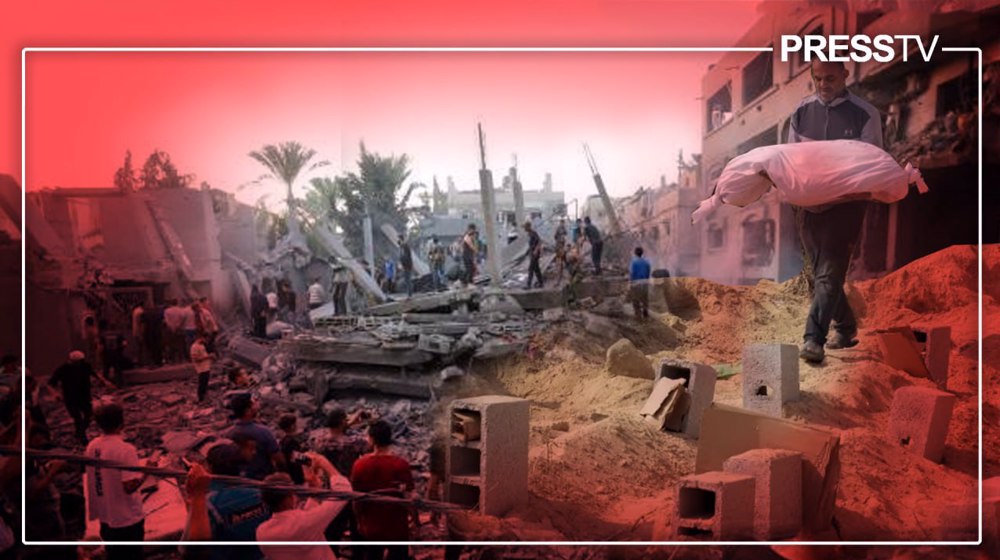

 This makes it easy to access the Press TV website
This makes it easy to access the Press TV website